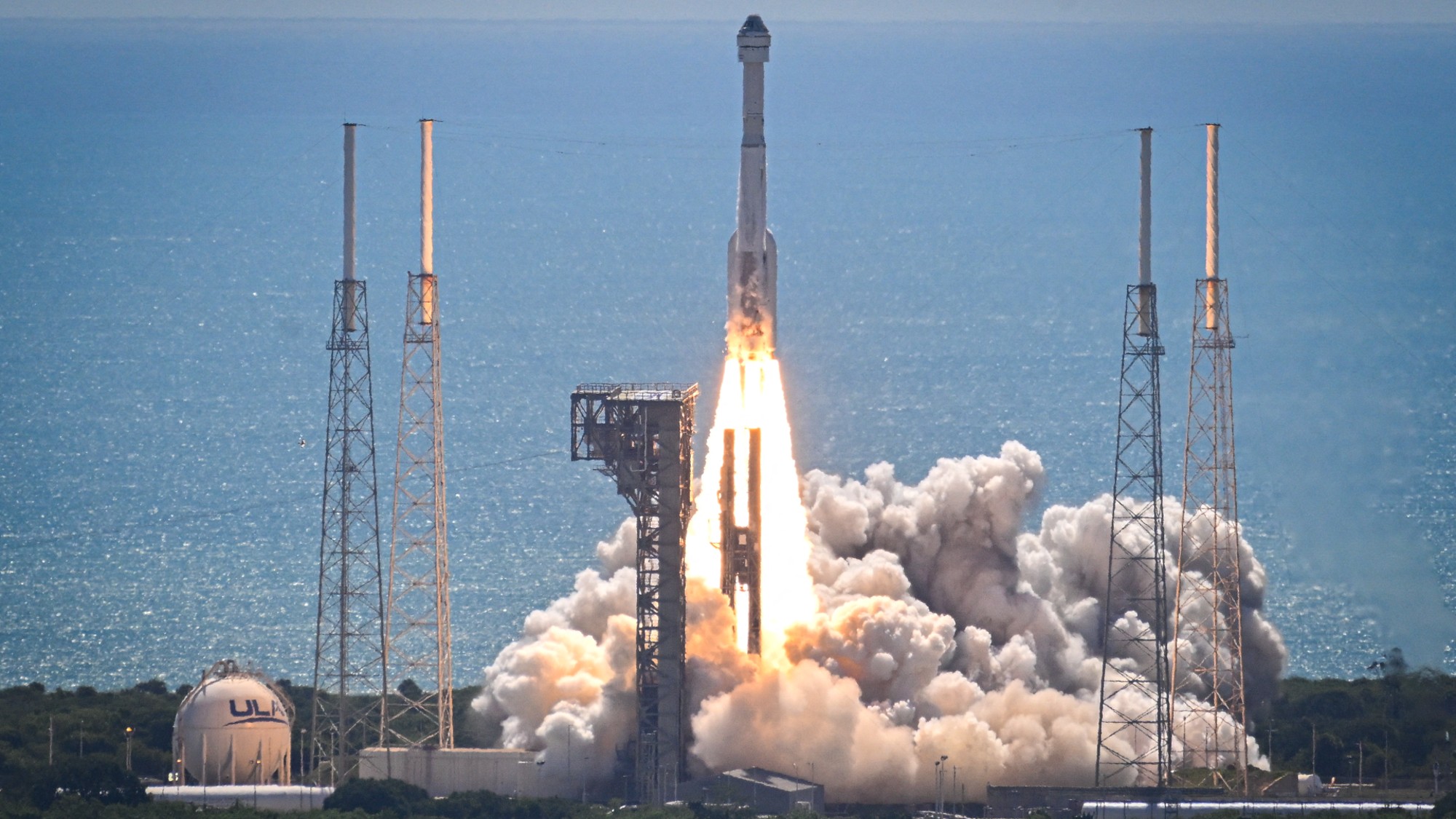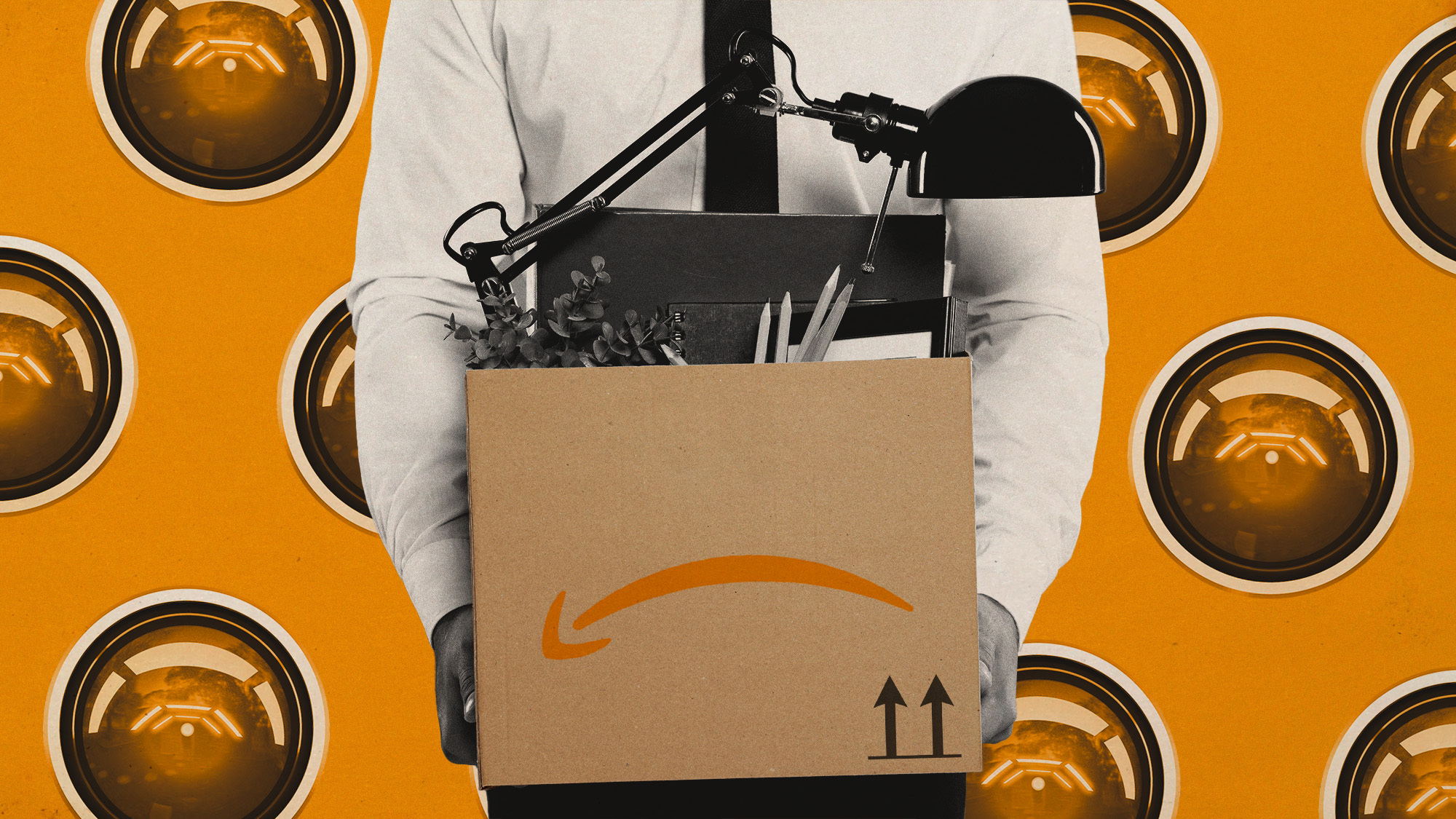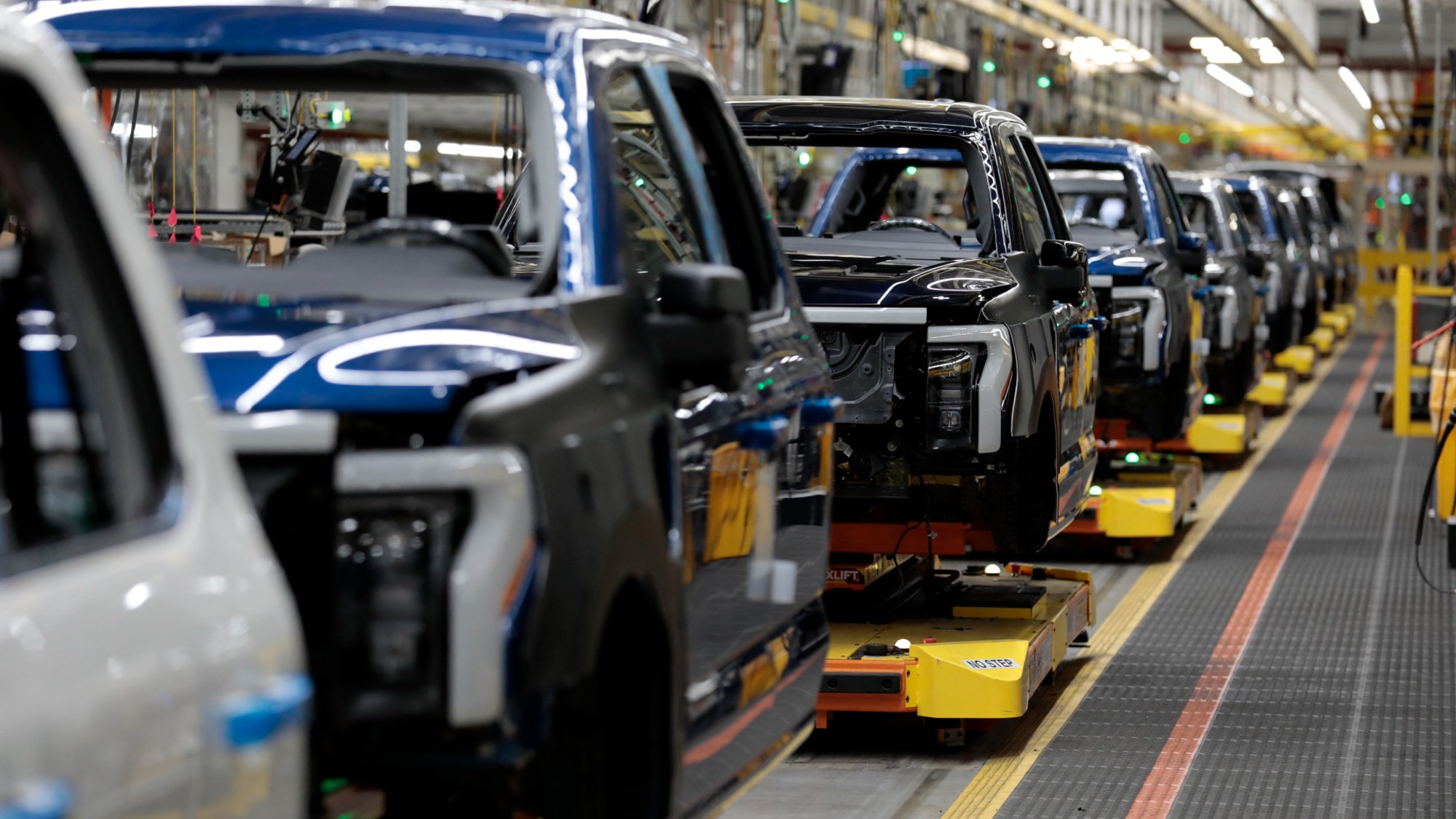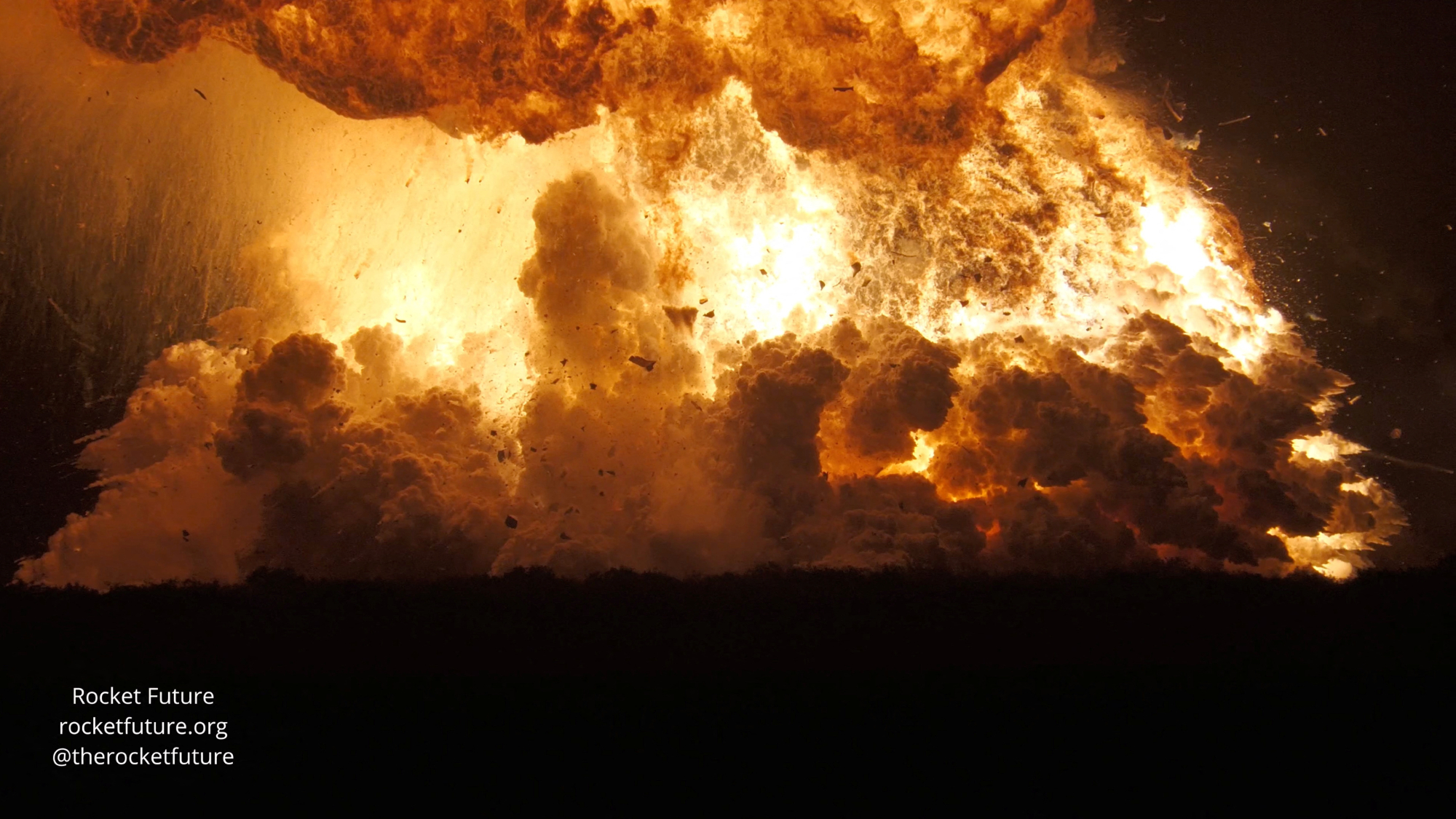Starliner: What went wrong?
Boeing spacecraft has had a 'long, difficult road'


A free daily email with the biggest news stories of the day – and the best features from TheWeek.com
You are now subscribed
Your newsletter sign-up was successful
What goes up doesn't always come down — at least, not right away. Boeing's Starliner mission to the International Space Station won't return to Earth until sometime in August, CNBC said, while engineers try to figure out why the craft's helium thruster system has been so troublesome. Just don't say the two-person crew that launched in June is "stranded in space." Yes, the capsule has spent nearly two months on what was originally intended to last a bit more than a week. But the astronauts will get home, one way or another. "NASA always has contingency options," said one official.
Boeing has had a "long, difficult road" getting the capsule into space, said The New York Times. Back in 2019, it appeared the company could beat Elon Musk's SpaceX to space. But an uncrewed launch that year went awry, upended by software errors that were caused by "multiple failures in Boeing's processes." The second launch, two years later, was also plagued by faulty thrusters. It took two more years after that to get astronauts to space: The delays reportedly cost Boeing $1.5 billion. Some observers say the trial-and-error is part of the game. "It's spaceflight, it's risky, it's dangerous," former astronaut Scott Kelly told The Washington Post. "Stuff can go wrong."
What did the commentators say?
"Starliner is clearly a problem-prone, clunky spacecraft," Mark R. Whittington said at The Hill. The question now is whether it's worth the time and money to overhaul the program, or if NASA should just stick to letting SpaceX ferry astronauts to the space station. It's not even clear if Boeing is capable of fixing the problems. Maybe it's time to look at other options like the Gaganyaan spacecraft from India or the Dream Chaser spaceplane currently in development. One thing that's clear: "Boeing has seen better days as an aerospace company capable of creating flight-ready hardware."
The Week
Escape your echo chamber. Get the facts behind the news, plus analysis from multiple perspectives.

Sign up for The Week's Free Newsletters
From our morning news briefing to a weekly Good News Newsletter, get the best of The Week delivered directly to your inbox.
From our morning news briefing to a weekly Good News Newsletter, get the best of The Week delivered directly to your inbox.
Starliner's latest problems are a "misadventure the company's space division could ill afford," Thomas Black said at Bloomberg. The company is already suffering from a "tarnished reputation" thanks to a series of problems with its 737 Max airliner. "This is a company that doesn't need any more black marks on its reputation." That's why Boeing should spin off the space division into a standalone, "nimble" company that can focus on NASA's needs. "The space unit is a distraction for Boeing's main mission: making safe and reliable commercial aircraft."
What next?
Boeing might be looking for an exit. Just 10% of its revenues come from the spaceflight business, Marketplace said. And the industry is increasingly crowded with competitors like BlueOrigin and SpaceX that weren't around when Boeing originally got into the business. "It's the most vulnerable to disruptions of all of their businesses," one analyst said of Boeing. Starliner's future might be one of the first agenda items for new CEO Robert "Kelly" Ortberg.
In the meantime, there are still two astronauts — Butch Wilmore and Suni Williams — to bring home. The pair this week tested the capsule's thrusters, ABC News said, and the plan remains to return to Earth in the same craft that took them to space. But they might have to return aboard a SpaceX capsule. For now, though, NASA isn't ready to announce a return date. "We'll come home," said NASA's Steve Stich, "when we're ready."
A free daily email with the biggest news stories of the day – and the best features from TheWeek.com
Joel Mathis is a writer with 30 years of newspaper and online journalism experience. His work also regularly appears in National Geographic and The Kansas City Star. His awards include best online commentary at the Online News Association and (twice) at the City and Regional Magazine Association.
-
 Bonfire of the Murdochs: an ‘utterly gripping’ book
Bonfire of the Murdochs: an ‘utterly gripping’ bookThe Week Recommends Gabriel Sherman examines Rupert Murdoch’s ‘war of succession’ over his media empire
-
 Gwen John: Strange Beauties – a ‘superb’ retrospective
Gwen John: Strange Beauties – a ‘superb’ retrospectiveThe Week Recommends ‘Daunting’ show at the National Museum Cardiff plunges viewers into the Welsh artist’s ‘spiritual, austere existence’
-
 Should the EU and UK join Trump’s board of peace?
Should the EU and UK join Trump’s board of peace?Today's Big Question After rushing to praise the initiative European leaders are now alarmed
-
 Are Big Tech firms the new tobacco companies?
Are Big Tech firms the new tobacco companies?Today’s Big Question A trial will determine whether Meta and YouTube designed addictive products
-
 Data centers could soon be orbiting in space
Data centers could soon be orbiting in spaceUnder the radar The AI revolution is going cosmic
-
 Is Apple’s Tim Cook about to retire?
Is Apple’s Tim Cook about to retire?Today's Big Question A departure could come early next year
-
 Is AI to blame for recent job cuts?
Is AI to blame for recent job cuts?Today’s Big Question Numerous companies have called out AI for being the reason for the culling
-
 How will Ford reinvent EV manufacturing to compete with China?
How will Ford reinvent EV manufacturing to compete with China?Today's Big Question Henry Ford's assembly line system is being replaced
-
 What's Linda Yaccarino's legacy? And what's next for X?
What's Linda Yaccarino's legacy? And what's next for X?Today's Big Question An 'uncertain future' in the age of TikTok
-
 Another Starship blast sets back Musk's Mars hopes
Another Starship blast sets back Musk's Mars hopesSpeed Read Nobody was killed in the explosion, which occurred in south Texas
-
 Meta on trial: What will become of Mark Zuckerberg's social media empire?
Meta on trial: What will become of Mark Zuckerberg's social media empire?Today's Big Question Despite the CEO's attempt to ingratiate himself with Trump, Meta is on trial, accused by the U.S. government of breaking antitrust law
